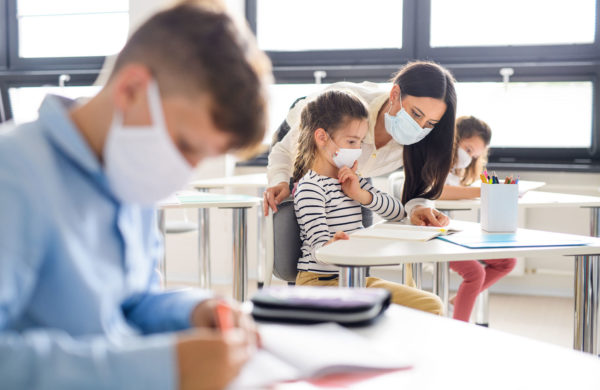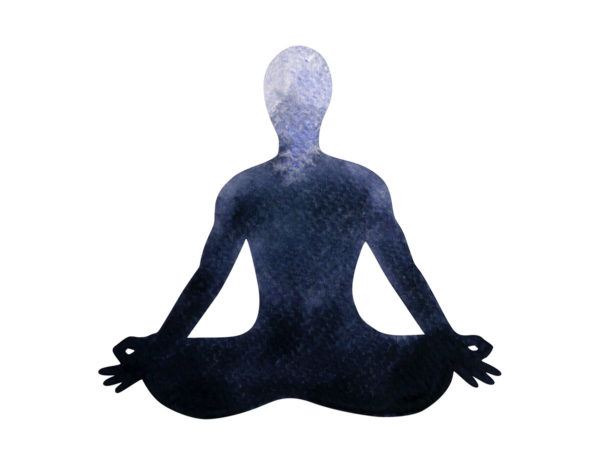
Kevin's current research focuses on three primary areas: meditation-based interventions; the relationship between mental/behavioral health and the climate crisis; and effective pedagogy for teaching antiracism and social justice to helping professionals. He is especially interested in the potential for scalable mobile-health technology (e.g, smartphone apps, teletherapy, text-based interventions) to supplement traditional models of weekly or bi-weekly psychotherapy and to help address inequitable access to mental health care. Kevin's clinical training has involved various roles in college counseling, community mental health, inpatient settings, and mandated psychiatric care for violent offenders with serious mental illness. These clinical roles and relationships are tremendous sources of meaning and motivation throughout Kevin's life, including in directing his research efforts.
----
Relevant Publications
Riordan, K. M., MacCoon, D., Barrett, B., Rosenkranz, M. A., Chungyalpa, D., Lam, S., Davidson, R. J., & Goldberg, S. B. (in press). Does meditation training promote pro-environmental behavior? A cross-sectional comparison and a randomized controlled trial. Journal of Environmental Psychology.
Link for above:
https://centerhealthyminds.org/assets/files-publications/Riordan-et-al
----
Goldberg, S. B., Riordan, K. M., Sun, S., & Davidson, R. J. (2022). The empirical status of mindfulness-based interventions: A systematic review of 44 meta-analyses of randomized controlled trials. Perspectives on Psychological Science, 17(1), 108-130.
Link for above:
https://journals.sagepub.com/d...
----
Goldberg, S. B., Baldwin, S. A., Riordan, K. M., Torous, J., Dahl, C. J., Davidson, R. J., & Hirshberg, M. J. (2021). Alliance with an unguided smartphone app: validation of the digital working alliance
inventory. Assessment, 10731911211015310.
Link for above:
https://journals.sagepub.com/d...
-----
Hirshberg, M. J., Frye, C., Dahl, C. J., Riordan, K. M., Vack, N. J., Sachs, J., Goldman, R., Davidson, R. J., Goldberg, & S. B. (In press). A randomized controlled trial of a smartphone-based well-being
training in public school system employees during the COVID-19 pandemic. Journal of Educational Psychology.
Link for above: https://psyarxiv.com/hrvmu/
----
Chiang, E. S., Riordan, K. M., Ponder, J., Johnson, C., & Cox, K. S. (2021). Distinguishing firefighters with subthreshold PTSD from firefighters with probable PTSD or low symptoms. Journal of loss and
trauma, 26(1), 65-77.
Link for above:
https://www.tandfonline.com/do...
----
Goldberg, S. B., Riordan, K. M., Sun, S., Kearney, D. J., & Simpson, T. L. (2020). Efficacy and acceptability of mindfulness-based interventions for military veterans: A systematic review and meta-analysis. Journal of Psychosomatic Research, 138, 110232.
Link for above:
https://www.sciencedirect.com/...
---
Chiang, E. S., Riordan, K. M., Himelein, M. J., Batada, A., Mulhollem, M. L., & Padilla, M. A. (2020). Elementary Physical Education: Cost is Personal and Social. Archives of Psychology, 4(3).
Link for above:
https://archivesofpsychology.o...
What does well-being mean to me?
"For me, a huge part of well-being is about moments of awe and wonder. I once spent over an hour silently admiring a flowering shrub teeming with hundreds, maybe thousands, of honeybees. Floating and diving from one tiny blossom to the next, it was impossible to say where the bees began and the bush ended. They were one and the same, extensions of each other, wild with life. In the pauses between all the thinking, beyond language and beliefs and trying, I can sometimes feel in my bones that the same is true for me. This deeper kind of well-being is what interests me most these days -- something transcendent and unaffected by illness, aging, loss, or material circumstances. Words are rarely adequate but when you experience it, you just know."
Related Studies
Educator Well-Being During the COVID-19 Pandemic
Understanding how the COVID-19 pandemic is affecting educators’ lives and whether a mindfulness-based program buffers against the negative effects of stress.
Examining Individual Differences in Contemplative Practice Response
This study seeks to build upon knowledge from Tibetan medicine through examining well-being data and microbiome measures on a variety of people with varying levels of meditation training who have participated in previous intervention studies to gain a better understanding of what works for whom and why.
Large-Scale Analyses of the Effectiveness of Mindfulness-Based Interventions
Examining the effectiveness of mindfulness-based interventions across research literature
Predicting the Effectiveness of Therapists
Examining how therapist differences impact client outcomes





